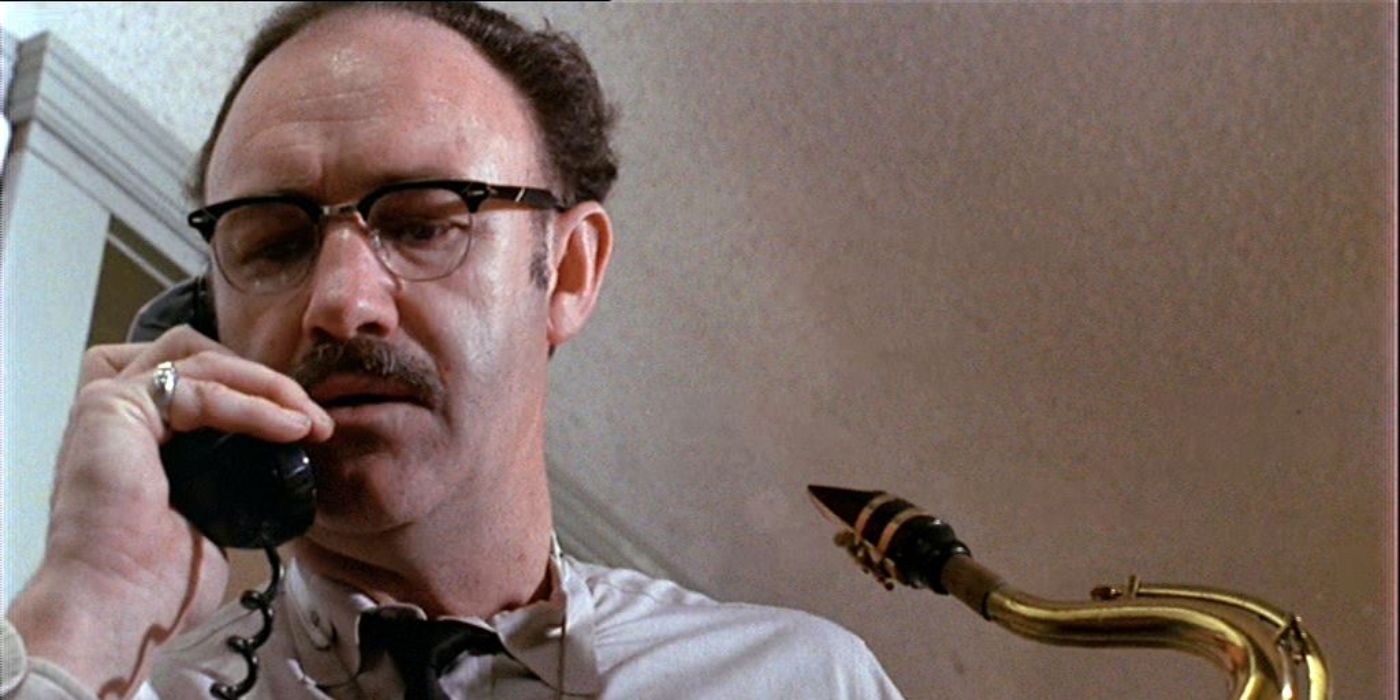Horror movies had a big resurgence in the 1970s, but one of the scariest films from that decade is in an entirely different genre. The 1970s was an unusual time for movies because Hollywood was at an important crossroads in its long history. Major studios were going belly-up and the creators from decades past were being shoved aside in favor of a new crop of young filmmakers with educations specifically in the art of film. Auteurs like Francis Ford Coppola, Steven Spielberg, and Martin Scorsese all blossomed in the ’70s, and helped to revolutionize mainstream moviemaking.
Eschewing the opulent blockbusters of the ’50s and ’60s, many of the New Hollywood masterpieces were smaller in scale but big on ideas. The focus was put squarely on storytelling, but the films also excelled at many of the technical aspects too. Coppola’s The Godfather is generally considered one of the greatest films of all time, and many other notable examples of Hollywood cinema came from the New Hollywood era. Though there is a timeless quality to many New Hollywood classics, one underrated gem is also a terrifyingly contemporary story that captures the fears of its time period perfectly.
What Makes The Conversation One Of The 1970s’ Scariest Movies
Urban Paranoia In The Heart Of The Watergate Era
The movie hits many of the same beats as classic noir stories, but has a grittier and darker edge that makes it feel shockingly modern.
In between releasing the landmark films The Godfather and The Godfather Part II, New Hollywood legend Francis Ford Coppola served up one of the most chilling films of the 1970s. The Conversation debuted in the early months of 1974, and is the truly nightmarish story of a surveillance expert who begins to spiral into a web of paranoia and conspiracy as one of his recordings potentially captures the sound of a murder. The movie hits many of the same beats as classic noir stories, but has a grittier and darker edge that makes it feel shockingly modern.
Unlike conventional horror films which feature some sort of monster, killer, or malevolent supernatural force, Gene Hackman’s Harry Caul is haunted by his own past and by a creeping suspicion that he may be in danger. The urban setting also plays a part in the terror as the streets of San Francisco become a labyrinthian landscape for Harry’s isolation and fear. When the film was released in 1974, tensions were high surrounding issues like privacy and surveillance, and the United States was embroiled in the Watergate scandal that had secretive tape recording at the heart of its conspiracy.
The Conversation is all tension as Harry begins to suspect that everyone around is out to get him. He is not only betrayed by those around him, but he can’t even trust his own instincts as the mystery gets stranger. The finale of the film is one of the creepiest movie endings of all time, and the audience is left feeling just as jaded and paranoid as Harry. The movie makes it abundantly clear that there’s another layer to the mystery, but Harry will just have to live with the knowledge that he’s always being watched.
The Conversation Is Underrated As A Francis Ford Coppola Movie
The Director Has A Lot Of Amazing Films In His Filmography
Despite its critical success and cultural importance, The Conversation is still something of an underrated gem in Francis Ford Coppola’s catalog. The film was immediately done a disservice because it was released between the first two films in the Godfather trilogy, and it was completely overshadowed by the sequel. In fact, The Conversation and The Godfather Part II were released mere months apart, and the former didn’t stand a chance against the latter. Though they weren’t box office compeтιтion, viewers might have had just a bit too much Coppola in one year.
Francis Ford Coppola’s 1970s filmography includes:
|
Movie |
Release Year |
Rotten Tomatoes Score |
|---|---|---|
|
The Godfather |
1972 |
97% |
|
The Conversation |
1974 |
94% |
|
The Godfather Part II |
1974 |
96% |
|
Apocalypse Now |
1979 |
90% |
The Conversation was nominated for several Oscars, including Best Picture, but was completely bowled over at that year’s Academy Awards by The Godfather Part II. Another reason it might be considered underrated is that it was something of a box office dud upon release. It made about $4.2 million against a nearly $2 million production budget (via Box Office Mojo), and that means it broke even at best when factoring in other costs. Plenty of great films go underseen when they’re first released, and The Conversation is much better than its financial history might imply.
For comparison, The Godfather Part II made nearly $50 million (via Box Office Mojo).
On a more intellectual note, The Conversation might be underrated largely because it was just a bit too real for viewers at the time, and now. The film is absolutely terrifying even though it isn’t a horror movie, and it probably struck too close to home for viewers who were still in the uncertain days of early 1974. The Watergate saga wouldn’t end until October of that year, so there were still a lot of questions left unanswered. Even today, The Conversation might scare away audiences because it has only become more realistic with the rise of modern surveillance technology.






